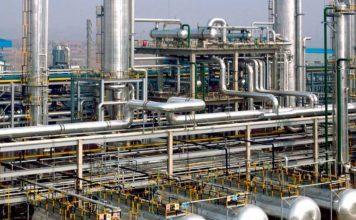The Independent Petroleum Marketers Association of Nigeria (IPMAN) and the Major Energy Marketers Association of Nigeria (MEMAN) have projected a marginal decreased in the pump price of Premium Motor Spirit, popularly known as petrol, produced from the Port Harcourt Refining Company once the plant begins operations next month.
IPMAN and MEMAN also announced their plans to load products from the facility, as they asked the Nigerian National Petroleum Company Limited (NNPCL)to fulfill its promise of pumping put refined products from the plant in two weeks time.
Mele Kyari, the Group Managing Director, NNPCL, declared on Friday that the port Harcourt refinery will start operations in about two weeks.
Kyari, who showed before the Senate Ad-hoc Committee investigating the various Turn Around Maintenance projects of refineries, disclosed that mechanical works had been completed on the Port Harcourt, Warri, and Kaduna refineries, stressing that the Kaduna refinery would commence operations in December.
“We did a mechanical completion of the (Port Harcourt) refinery, that was what we said in December. We now have crude oil already stocked in the refinery. We are doing regulatory compliance tests that must happen in every refinery before you start it, and I assure you that this Port Harcourt refinery will start in the next two weeks.
“Completing the mechanical work means that you are done with the rehabilitation work, now you have to test to see how it works. Of course, we have also completed the mechanical work on the Warri refinery.
“It is also undergoing regulatory compliance; processes that we are doing with our regulator, and this will soon be completed and it will be ready. The Kaduna refinery will be ready by December. We have not reached that stage in Kaduna, but we promise Kaduna will be delivered by December,” Kyari had explained.
From the news gathered, Abubakar Maigandi, the National President of IPMAN said that marketers had been informed about the development and ready to start lifting goods.
He said once the plants start producing, the cost of petrol would decreased, and also stressed that this will be a marginal reduction.
“As independent petroleum marketers, immediately we received the information, we told all our members to start preparing for loading, especially those in the South-South region of the country, because it is closer to them.
“So at any time they (NNPCL) say we should come and start loading, we are ready. We are just waiting for them to start,” the IPMAN president stated.
He added, “Price reduction is obvious when they start releasing products, and there will be availability because it would serve as support to the imported products. So we are expecting a change in price, for no matter how small the reduction is, it is still a reduction.
“Also, the commencement of operations there will create more employment for Nigerians. So it is a welcome development and IPMAN is happy about this, especially if products start coming out from the plant in the next two weeks as promised by NNPCL.”
Also, Clement Isong, the Executive Secretary of MEMAN, stressed that oil marketers had been purchasing from the trading arm if NNPCL, saying that the arm of the national oil will be in charge of product to come out from the Port Harcourt refinery.
He stressed that since the facility will not be able to provide all the quantity of petrol required by the consumers, MEMAN would definitely load from the plant by buying refined products through the trading arm of NNPCL.
“Sure, we have been buying from the trading arm of NNPCL and we will continue once products from the refinery are being released. On price reduction, this is going to be marginal, because the product is being produced in Nigeria,” he stated.
Kyari had told the Senate that over 450, 000 barrels of oil had been stocked into the Port Harcourt refinery, which means the plant is ready to deliver refined crude to the market.
The Federal Government declared that the mechanical completion of Port Harcourt refinery had been completed, noting that products from the plant would get to the market before the end of last year.
However, it didn’t work as Nigerians anxiously await the production of refined petroleum products from refineries in Nigeria. Currently, Nigeria imports its refined petroleum products through the NNPCL.
